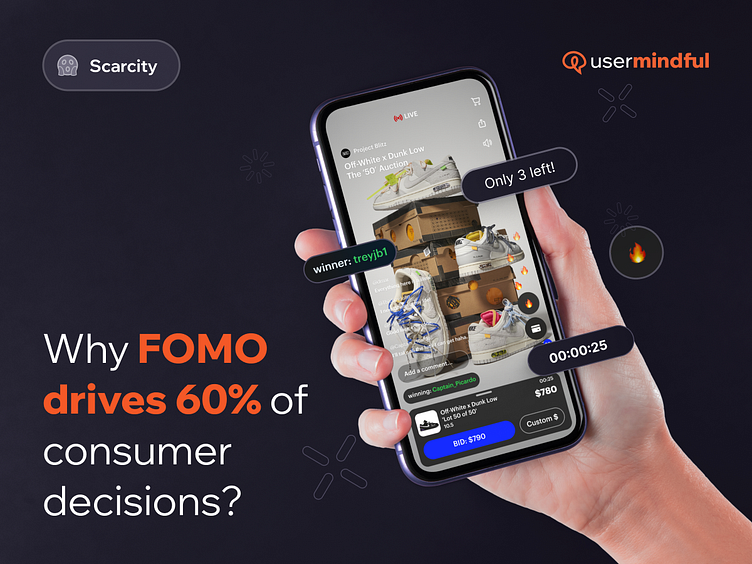Principles: Scarcity
Fear of missing out (FOMO) is fueled by a psychological heuristic called scarcity. Heuristic is a mental shortcut that our brain takes to explain something in a quicker way. What’s interesting, based on research feeling FOMO drives a whopping 60% of consumers during their buying decisions.
What is Scarcity?
The scarcity heuristic is the tendency to see things as more valuable when they are rare or in short supply.
Scarcity is like a rare diamond: the harder it is to get, the more valuable it seems.
Think about a limited-edition toy or a special pair of shoes that only a few people can own. Because these things are scarce, they suddenly become much more desirable, even if they aren't actually better than other toys or shoes.
Digital products may seem like they can be infinitely available, but you can still leverage the scarcity principle by limiting time-sensitive offers, highlighting exclusivity, or creating a sense of urgency with countdowns and limited-quantity notifications.
See how this behavioral principle is used to impact your perception and motivation in UX.
See detailed breakdown on Behance
See detailed breakdown with all examples on UserMindful.Design
------------------
Other Principles:
Read about Social Proof and see how it influences your decision-making through the behavior and opinions of others.
Read about Defaults and see how it helps you make decisions without knowing
Read about Uncertainty and how it stops you from taking action
------------------
Behavior Design:
As UserMindful.Design we aim to introduce behavioral frameworks, models and methods closer to the UX community in order to support development of ethical, inherently engaging digital products that redefine how people connect, thrive and persevere.
Contact us: contact@usermindful.design
Follow us on Behance
__________
Disclaimer:
*This material is created for educational and analytical purposes only. UserMindful is not affiliated with, endorsed by, or sponsored by Ntwrk or its parent company. All logos and trademarks used in this material belong to their respective owners and are included here under fair use for educational purposes. This work is independent and has not been authorized, sponsored, or otherwise approved by Ntwrk.

